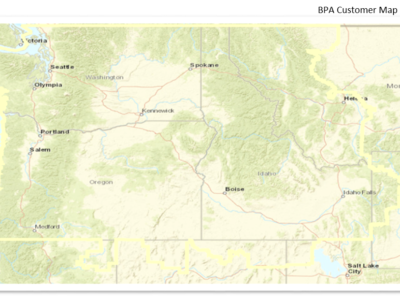By Glenn Blackmon, Ph.D. Washington’s Energy Independence Act (EIA) requires that electric utilities over a certain size use renewable resources for a portion of the energy that they deliver to their retail customers. The EIA provides flexibility to utilities in the renewable resources that they can use to meet this requirement. However, like every other state renewable portfolio standard (RPS), the EIA also includes limitations on eligibility. Not just any…
Author Archives: Rachel Lucas
The State Energy Office is accepting grant applications for the Research, Development and Demonstration (RD&D) Program from Washington-based entities seeking funds for clean energy projects. Application period ends on Aug. 31, 2018. This program is part of the Clean Energy Fund 3 (CEF 3) and appears in Section 1013 of Substitute Senate Bill 6090 of the Capital Budget. In this program, $7,614,500 will be competitively awarded. Commerce consulted and coordinated…
Commerce likes to take a collaborative approach to strengthening communities. The new rule regarding alternative fuel types in government vehicles is one such example, where we don’t have the authority or resources to enforce the rule. Using outreach and education, we’re asking local governments to self-report their vehicle purchases according to RCW 43.19.648. The law, amended in 2013, requires local governments to fuel publicly owned vehicles, vessels and construction equipment…
Staff at the office, along with folks from Ecology, visited the Klickitat County PUD1 site for a closed-loop pump storage hydropower project at the John Day pool. This is being funded in part by the Clean Energy Fund through appropriations by the 2018 legislature. A closed loop system consists of two reservoirs at different elevations, and apart from a free flowing water source, such as a river. They have fewer…
The U.S. Department of Energy’s Small Business Innovation Research (SBIR) and Small Business Technology Transfer awards have been announced for 2018 Phase 1, Release 2. Congratulations to the following grantees: Molecule Works, Inc., Richland WA (Concentration and Dewatering of micro-algae cultures with high throughput ceramic membranes.) Artesion, Inc., Federal Way WA (Development of an Environmentally acceptable Hydraulic Fluid.) Clearsign Combustion Corp., Seattle WA (Low Temperature Plasma Flame Stabilization in a…
On Jan. 16, 2018, Gov. Jay Inslee signed Executive Order 18-01, State Efficiency and Environmental Performance (SEEP), which aims to align the state’s day-to-day operations with its ambitious policy goals to reduce greenhouse gas emissions and other pollution. SEEP directs state agencies to identify and adopt cost-effective measures that reduce emissions, focusing on new facilities, existing facilities, ferries, electric vehicles, environmentally preferable purchasing, and finance. In addition, it sets up…
Our Washington State Weatherization Assistance Program staff are getting together in Phoenix the week of May 21 with their western states co-workers to learn the latest in weatherization and building science at the 2018 Energy OutWest conference. One thing you might not have expected them to talk about, though, is poverty – how it moves through generations, how it limits people’s choices and how we can better serve families in…
In April, Commerce’s Director, Brian Bonlender spoke at the IEEE-Northwest Energy Systems Symposium. The following is our summary of his speech. He discussed the many changes occurring in the electric energy industry. In Washington, we have a vision for our energy future—choosing strong, progressive policies based on what makes sense for our state and regional energy systems, environment and the long-term sustainability of our economy. The changes shaping Washington’s electric…
The Commerce Weatherization program has started work to standardize its client education material. In the past, each local agency developed their own client handouts. Sometimes there wasn’t enough information and sometimes the information was overwhelming. Now we will have a standardized resource book including brochures and internet links to help clients understand the importance of maintaining the work done by weatherization crews. Without solid, easy-to-understand information clients can’t obtain the…
The National Association for State Community Services Programs is featuring Judy Darst in Women of Weatherization, a series of profiles for Women’s History Month. One of the most experienced people in Washington weatherization, Judy has worked both sides of the program as a weatherization field monitor and more recently in our office helping write policy. She started with the weatherization program in 2004 and has been going strong ever since.

